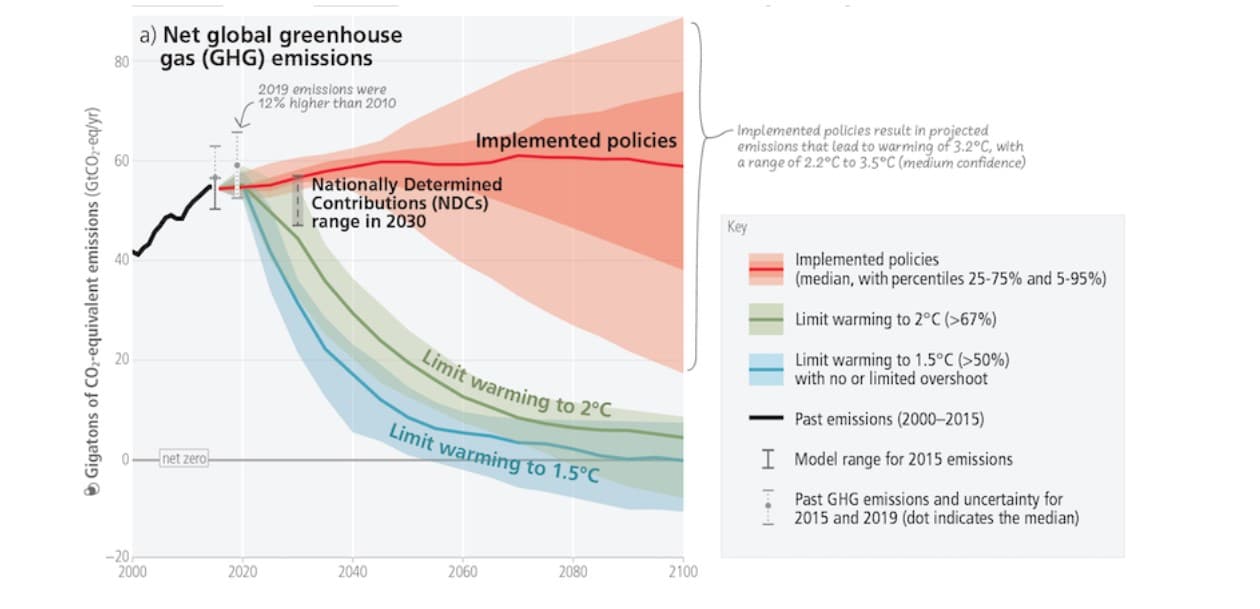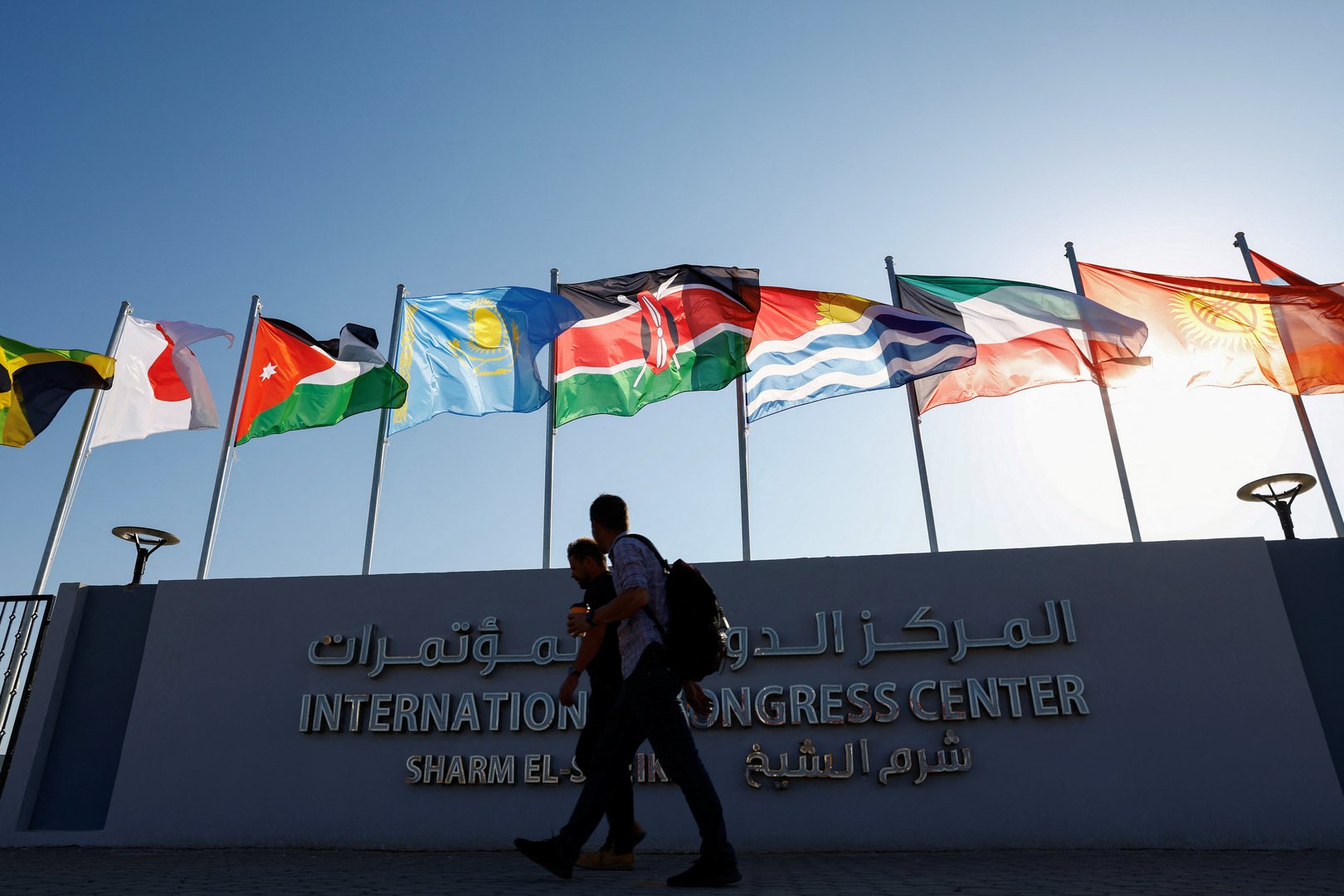By Charles Ellinas
The UN Intergovernmental Panel on Climate Change (IPCC) released in September a review of the energy transition progress on meeting the Paris Agreement goals, referred to as the ‘Stock-take’. This takes place every five years and is designed to show how country promises compare with what actually happened, and push nations to step up their efforts to reduce emissions. This process will culminate with talks and decision-making at the UN climate conference COP28, taking place in Dubai between 30 November – 12 December.
Not surprisingly, the Stock-take found that the world is far off track. Countries’ current policies and pledges would fail to meet that goal. Meeting the ‘Paris Agreement’ and ‘net-zero by 2050’ goals, would require drastic cuts in emissions by 2030. This has increased pressure on ‘phasing out’ fossil fuels. But energy security concerns have shifted emphasis to the ‘phasing-down’ of fossil fuels more gradually, in line with the increase in renewables. This is expected to be at the centre of talks at COP28 in Dubai.

Some of the biggest polluters, such as China, but also the oil and gas companies, are pushing for carbon capture, utilization, and storage (CCUS) as the answer to abating energy emissions. This is also supported by big oil and gas-producing countries like Saudi Arabia and the UAE. It would allow fossil fuels to be used well into the future, until green technologies develop to provide the energy the world needs reliably and affordably.
There is also a major divide between developing and developed countries over how to cut greenhouse gas (GHG) emissions and especially on who should be paying for the energy transition and the required massive investment in clean energy technologies that are required. The $100bn climate finance, as well as the loss and damage climate adaptation fund, promised to developing countries, are yet to materialize. Initial agreement reached this week in Abu Dhabi on the latter is weakened by US objections and it remains to be finalized at the COP28 summit.
In an interview in the FT Sultan Al-Jaber, COP28 president, said he was “optimistic that a loss and damage fund, which was agreed last year to help countries affected by global temperature rises, would be operational by COP28.”
But, as expected, the blandest message on the road to COP28 came from the UN Secretary-General Antonio Guterres at the UN General Assembly in September. Citing extreme weather-related events this year, such as wildfires, floods, droughts, and extreme heat, he said that current climate action is falling abysmally short. “G20 countries are responsible for 80% of GHG emissions. They must lead. They must break their addiction to fossil fuels, and stop new coal.” He also called for a global phase-out of oil and gas. This will set the tone in Dubai.
But that was not a view shared by China’s special envoy for climate change, Xie Zhenhua. He said in September that “it is unrealistic to completely phase out fossil fuel energy” and that China opposes fossil fuel ‘phase-out’ language. He also said that China could support a renewable energy expansion target. His views matter as China can help pave the way for a new climate agreement but can also block it.
Al Jaber’s more sobering views may yet prevail. “We need to be practical, realistic, and sober about what it is going to take, to allow for the world to continue to evolve and to progress, and to grow in a way that is responsible, while also building the new energy system that will consist of zero unabated fossil fuels.”
As the world intensifies its efforts to decarbonize and reach ‘net-zero by 2050’ goals, the intermittent nature of renewables makes natural gas key to a reliable energy transition.
The use of natural gas strengthens energy security, ensures equitable energy access, and bridges the energy poverty gap that still affects millions of people. And above all, it helps the world switch away from coal. That will be one of the messages at COP28.
However, the International Energy Agency (IEA) stated in September that the world is on the “cusp of a historic turning point,” with the burning of fossil fuels set to peak within the next few years, and before 2030, and decline thereafter.
There will be fierce arguments at COP28 about the future use of abated and unabated fossil fuels. Participating countries are already divided between those, such as the EU, who are calling for a ‘phase-out’ of fossil fuels and those who prefer to talk about ‘phase-down’, seeing a role of CCUS and emissions abatement in the energy transition, such as China and Saudi Arabia.
The IEA has identified conditions for the COP28 summit to be considered successful. These include an agreement to triple renewable energy capacity and double energy efficiency improvements by 2030, an agreement on mechanisms to support clean energy financing in emerging countries and getting the loss and damage fund up and running.
Alarming weather-related events this year demand a successful outcome to COP28, with the imperative that energy transition must be accelerated, but with due attention to energy security and affordability.
Charles Ellinas is a Senior Fellow at the Global Energy Centre of the Atlantic Council. This piece is also posted on the blog of the Cyprus Economic Society.







Click here to change your cookie preferences